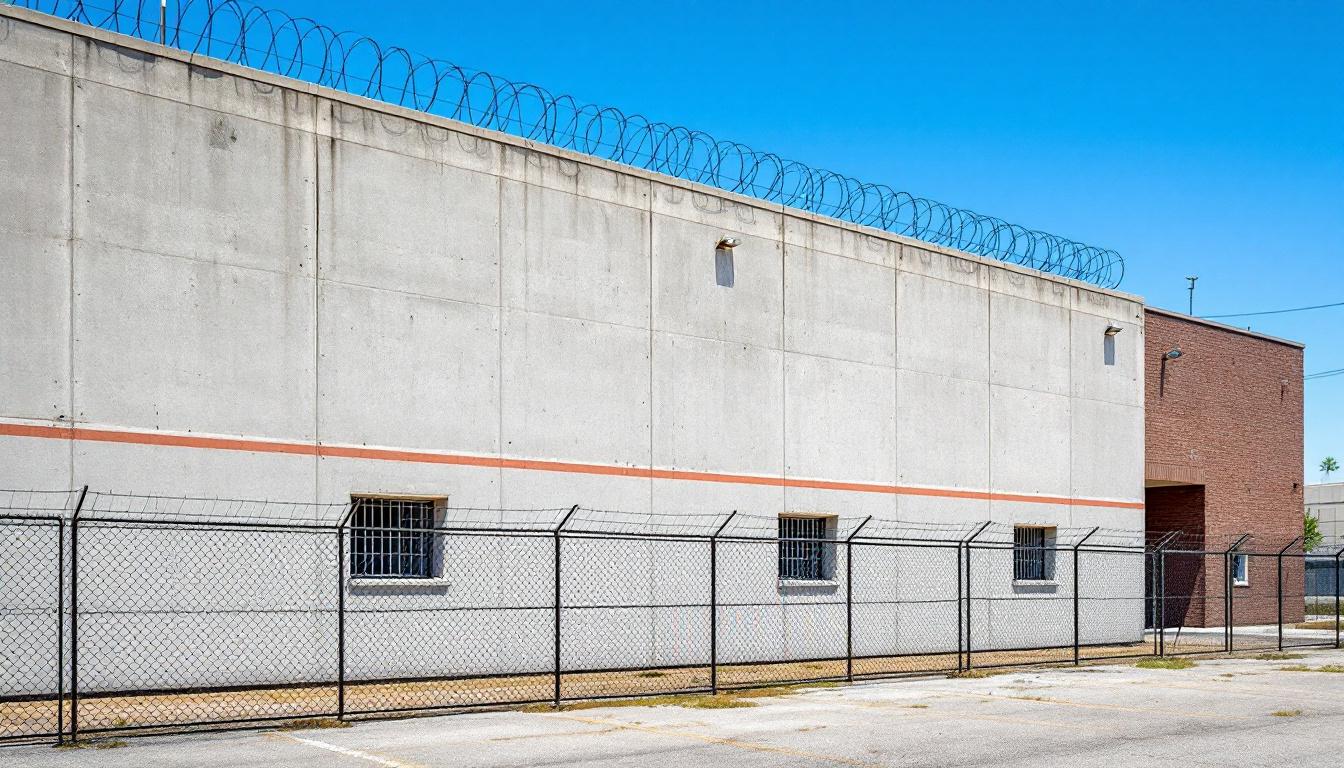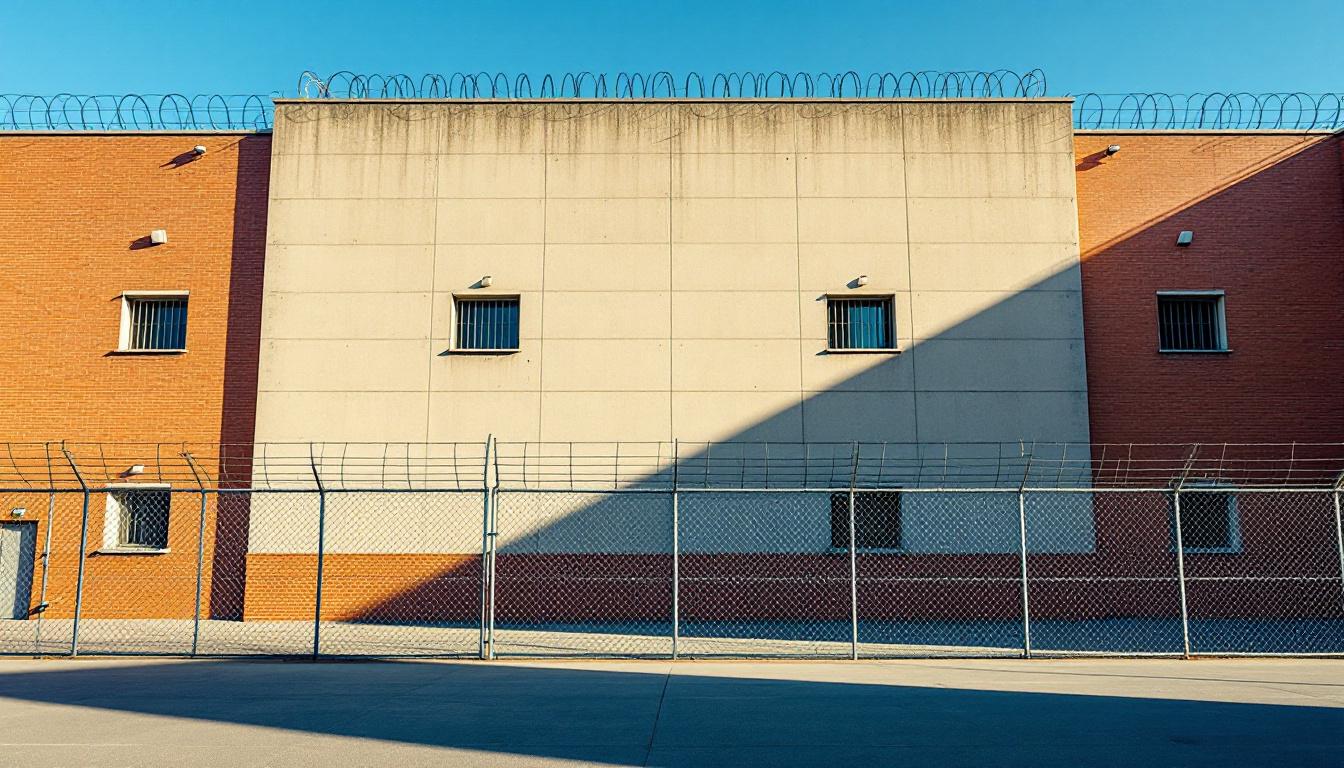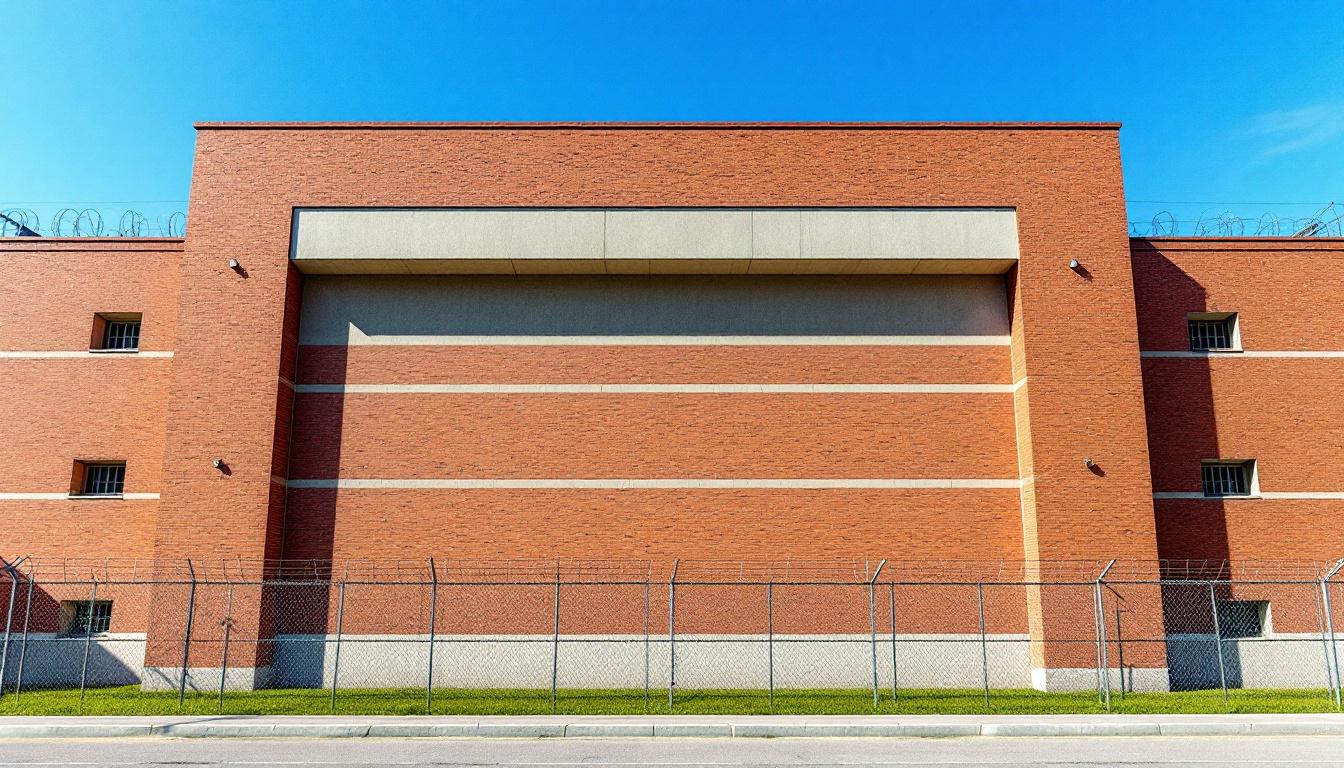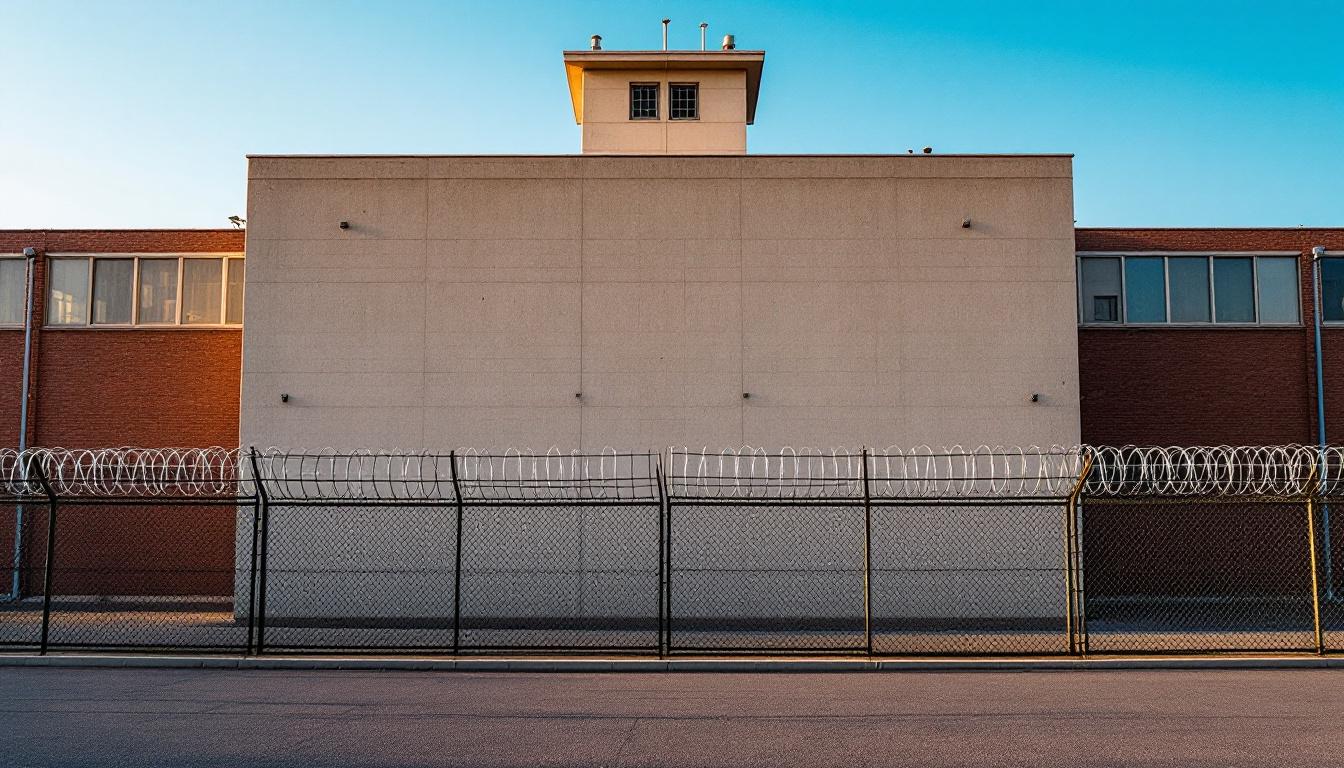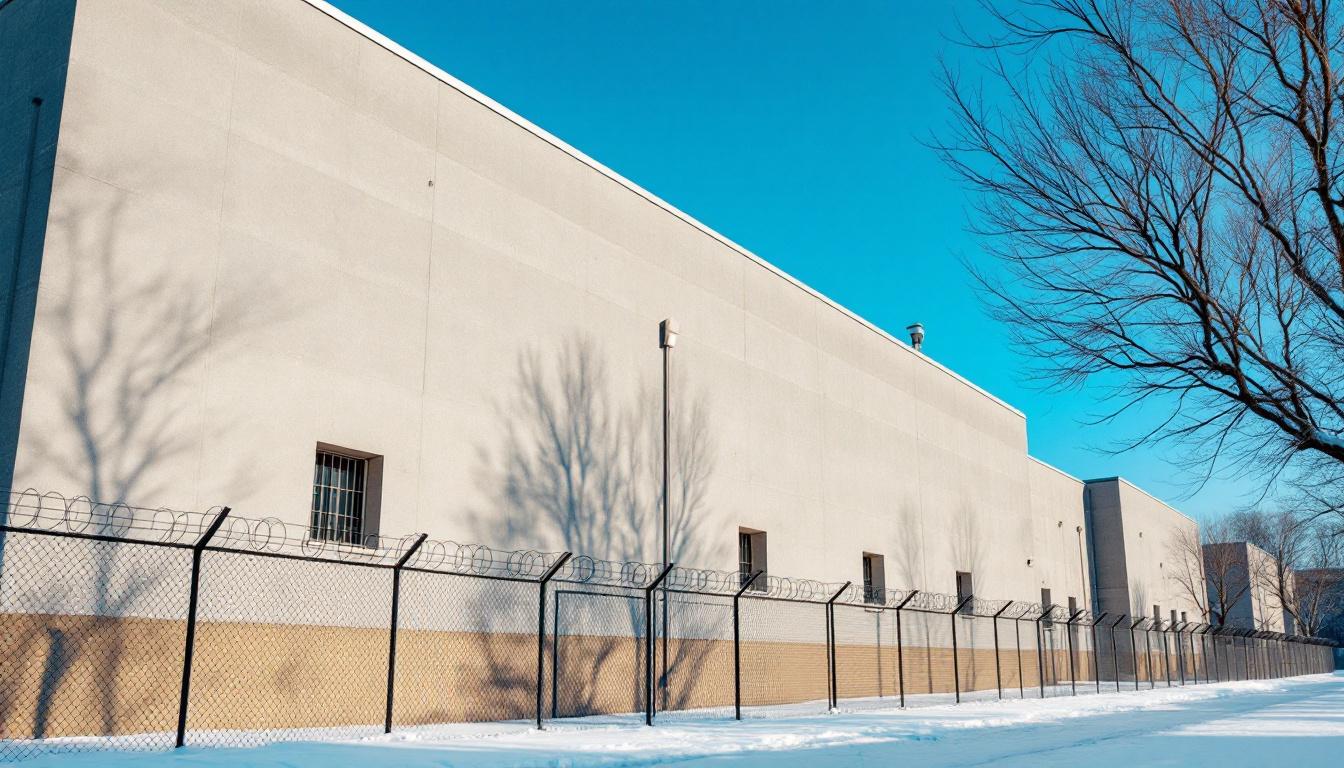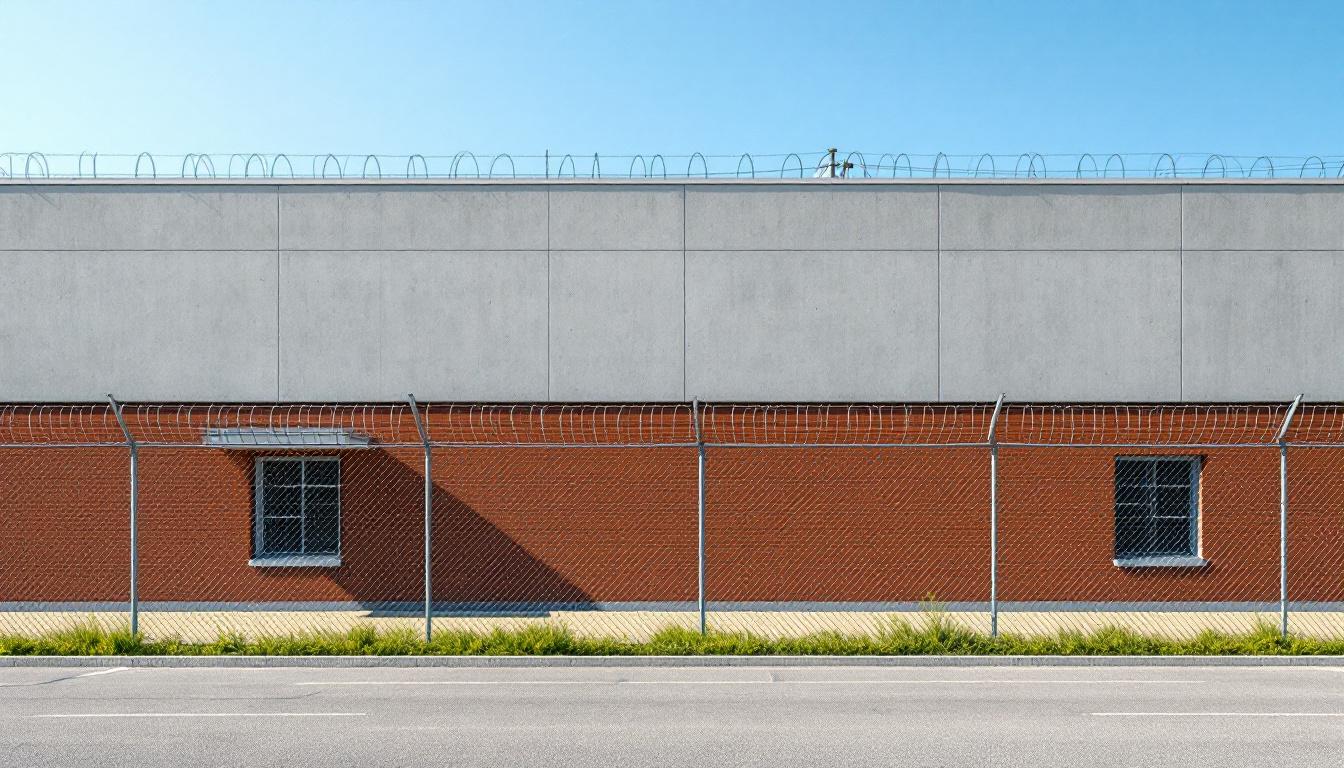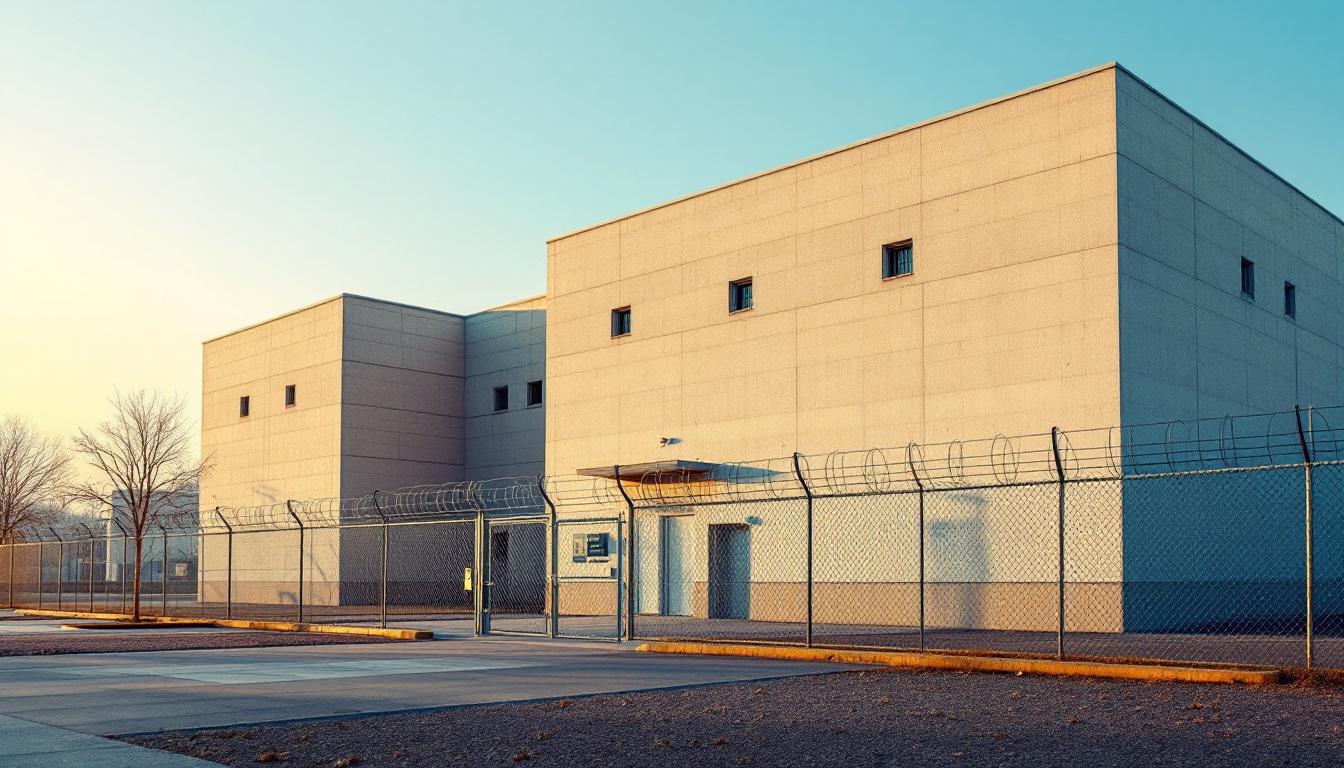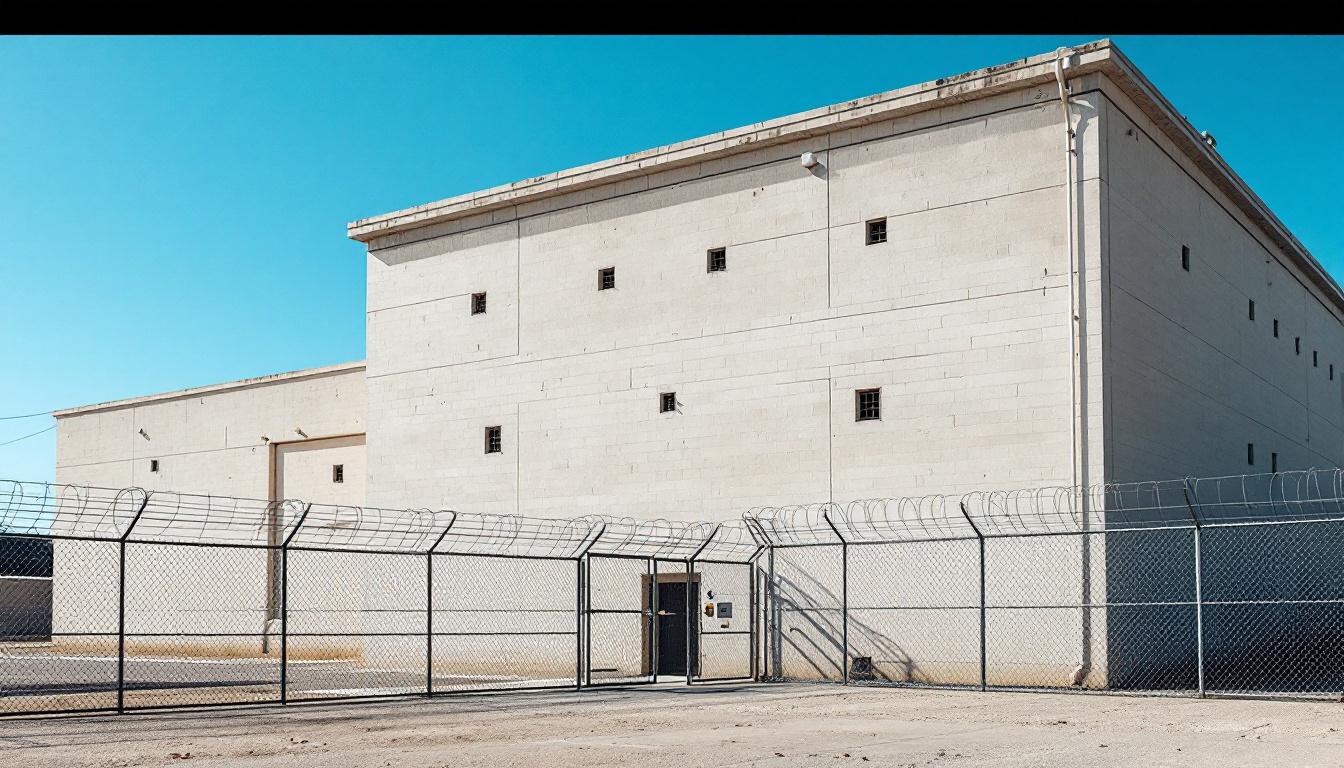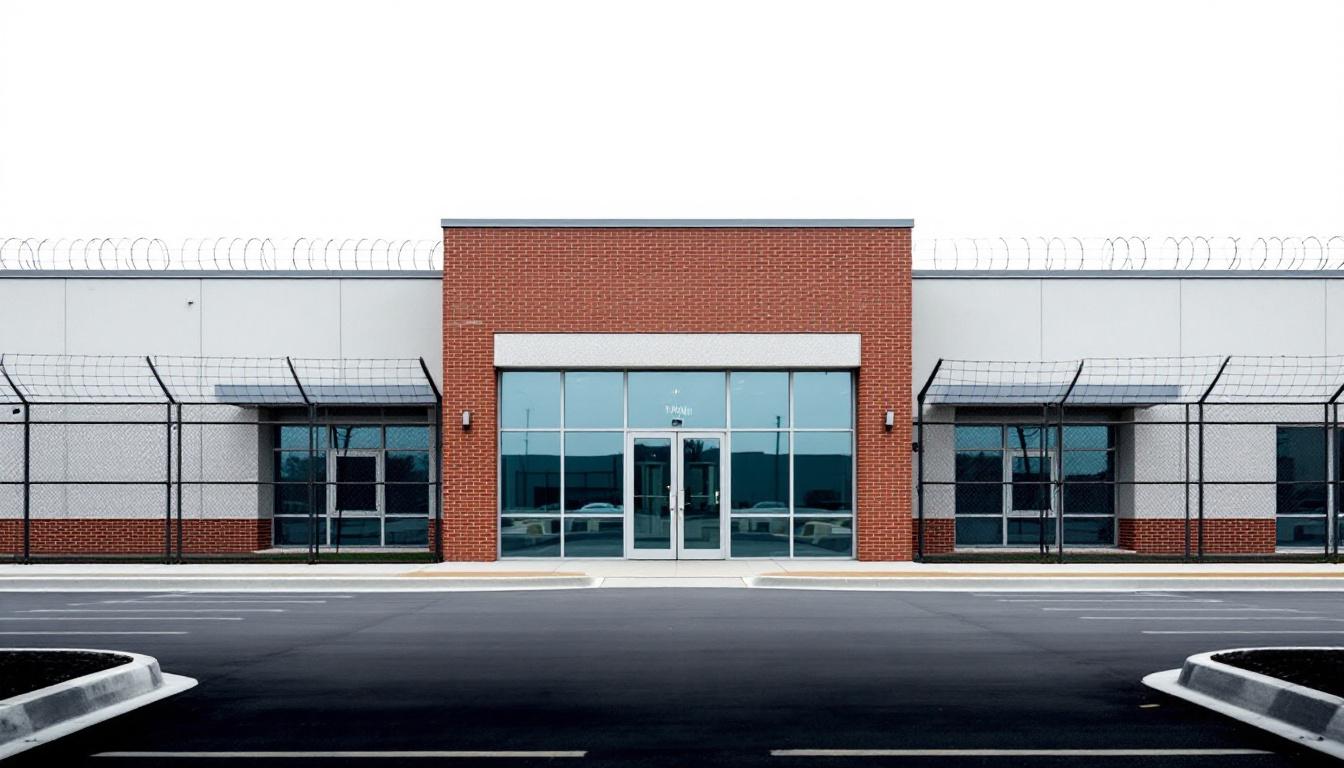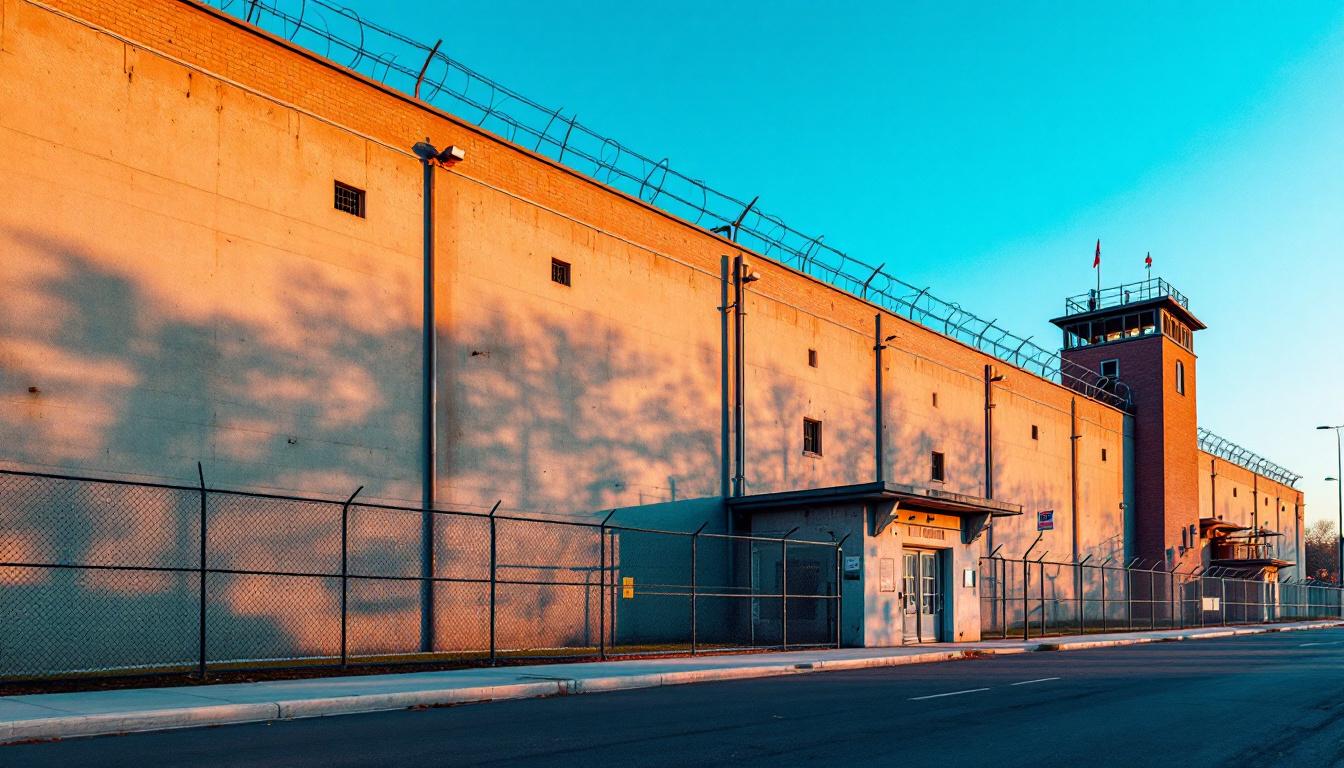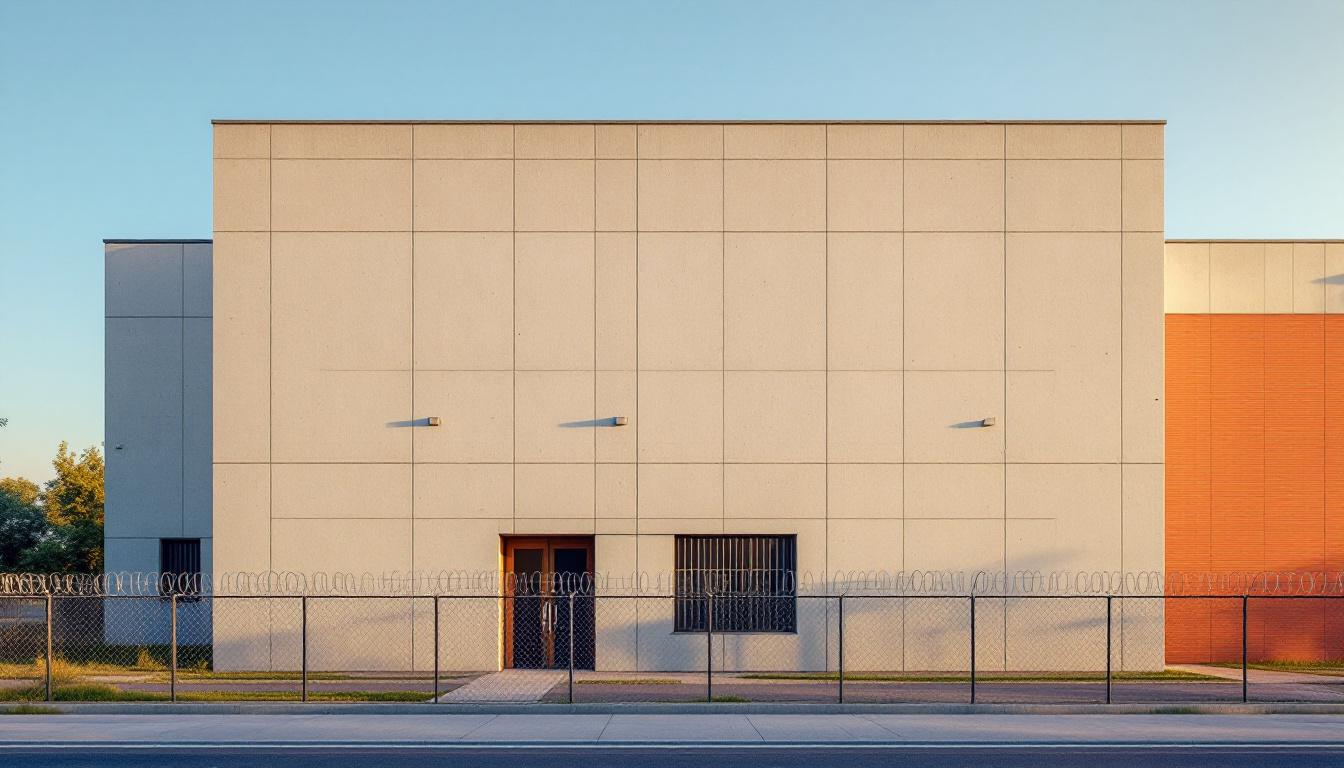
Quick Navigation
How to contact an inmate at BBC Detention Center
This comprehensive guide will walk you through how to connect with an inmate at BBC Detention Center. Follow the steps below to find an inmate and send letters and photos:
- Search for the inmate using our search tool below
- Create your account or log in to Penmate
- Write your message (up to 6,000 characters)
- Send instantly - inmates receive printed copies daily
Find an Inmate
Search for an inmate to start communicating today
Tip: You can search by first name, last name, or inmate ID number
To contact a person at BBC Detention Center start by searching for the person on the official facility website. Perform a search by following these steps:
- Step 1: Enter their first name and last name into the search form and click "Search"
- Step 2: Locate their inmate record
- Step 3: Write down their Inmate ID and any housing information provided
Important! Be sure to enter the person's full name. Nicknames should not be used.
How to Send Messages to Inmates

You can use your phone or computer to send emails, letters, and photos to an inmate. Messages are sent electronically to inmate tablets or kiosks at the facility. If you would like to send a message, start by searching for an inmate at BBC Detention Center.
Sending Photos and Postcards

A great way to send love and support to a loved one at BBC Detention Center is to send photos and postcards. It only takes a few minutes to send photos from your phone and it makes a huge difference. You can also mail postcards with words of support and inspiration, or design your own postcard for special moments like birthdays and holidays.
Important! Be sure not to send any explicit photos or they may not be approved by the facility. You can also use a photo printing app like Penmate to make sure your photos are printed at the correct size (4x6 or 3x5) and are mailed according to the rules and regulations of BBC Detention Center.
Frequently asked questions about BBC Detention Center
-
How long does it take to deliver a message?
If you're sending an email message your letter is usually delivered within 24-48 hours. For messages sent via mail you should expect delivery within 3-7 days. All messages will need be approved by BBC Detention Center.
-
How much does it cost to send a message to BBC Detention Center?
You can send a message free using your phone or mail a message via USPS for the price of a $0.60 stamp and envelope. You can also purchase credits or e-stamps from services starting at $1.99.
-
What services can I use to contact an inmate at BBC Detention Center?
Penmate
You can use Penmate to send letters and photos to an inmate from your phone. It's an easy way to stay in touch during your loved one's incarceration. Use the inmate locator to find an inmate's location and contact information, then you can send messages within a few minutes.
Securus messaging
Securus may be another option for communicating with an inmate at BBC Detention Center. You can create a friends and family account and purchase credits to send messages. All messages will be reviewed and must be approved by the facility.
JPay
Some county jails and state prisons may support sending messages with JPay. You must register an account with the system, find your loved one, and purchase stamps to send messages. For some locations you can also attach photos.
Smart Jail Mail
You may also check if Smart Jail Mail is available at BBC Detention Center. Smart Jail Mail is operated by Smart Communications and has contracted with some state and county jails. After purchasing credits, your messages and photos are sent to the facility, printed out, and then handed out to your loved one.
-
What is the mailing address of BBC Detention Center?
Mailing address:
BBC Detention Center
474 LA-15
Rayville, LA 71269
Phone: (318) 248-3057 -
What are the visiting hours at BBC Detention Center?
Visiting hours at BBC Detention Center vary by housing unit and security level. Generally, visits are scheduled on weekends and holidays, with some facilities offering weekday visits. Contact the facility directly at (318) 248-3057 or check their website for the current visiting schedule. Visits typically last 30-60 minutes and must be scheduled in advance.
-
What items are prohibited when sending mail to BBC Detention Center?
Prohibited items typically include: cash, personal checks, stamps, stickers, glitter, glue, tape, staples, paperclips, polaroid photos, musical or blank greeting cards, hardcover books, magazines with staples, and any items containing metal or electronics. Only send letters on plain white paper with blue or black ink. Photos must be printed on regular photo paper (no Polaroids). Always check with BBC Detention Center for their specific mail policies.
-
How do I send money to an inmate at BBC Detention Center?
You can send money to an inmate at BBC Detention Center through several methods: 1) Online using JPay, Access Corrections, or the facility's approved vendor, 2) Money orders mailed directly to the facility with the inmate's name and ID number, 3) Kiosks located in the facility lobby, or 4) Over the phone using a credit or debit card. Fees vary by method, typically ranging from $2.95 to $11.95 per transaction.
-
Can I schedule a video visit with an inmate at BBC Detention Center?
Many facilities now offer video visitation as an alternative to in-person visits. At BBC Detention Center, video visits may be available through services like Penmate, Securus Video Connect, GTL, or ICSolutions. Video visits typically cost $10-20 for 20-30 minutes and must be scheduled in advance. You'll need a computer or smartphone with a camera and reliable internet connection. Contact the facility for their specific video visitation policies and approved vendors.
-
What identification do I need to visit an inmate at BBC Detention Center?
All visitors must present valid government-issued photo identification such as a driver's license, state ID, passport, or military ID. Minors must be accompanied by a parent or legal guardian who can provide the minor's birth certificate. Some facilities require visitors to be on the inmate's approved visitation list, which may require a background check. Contact BBC Detention Center for specific ID requirements and visitor approval procedures.
-
How can I find out an inmate's release date?
To find an inmate's release date at BBC Detention Center, you can: 1) Use the online inmate search tool if available, 2) Call the facility's records department, 3) Contact the inmate's case manager or counselor, or 4) Have the inmate provide this information during a call or visit. For privacy reasons, some facilities only release this information to immediate family members.
Facility Overview
Official Website
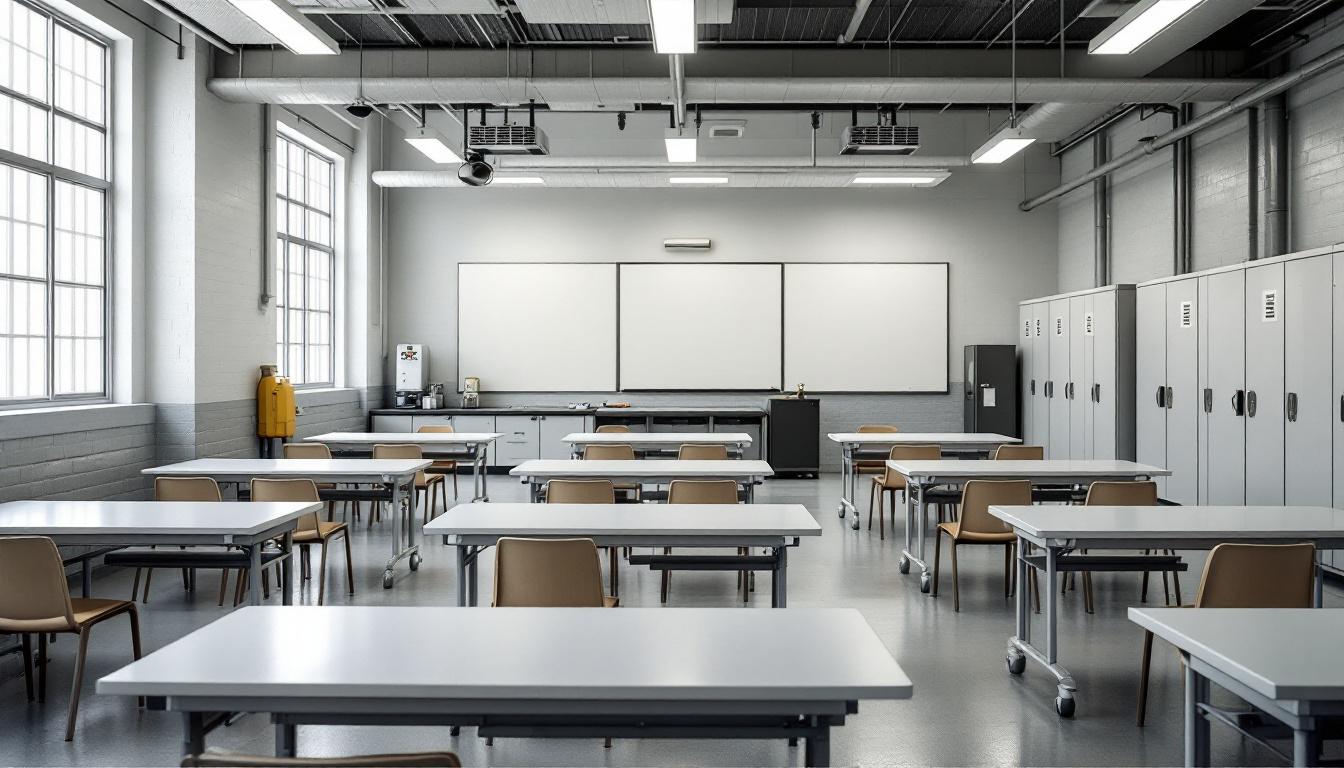
About BBC Detention Center
Maintaining public safety while supporting rehabilitation efforts defines the core mission of the Richland Parish Detention Center, which operates as a vital component of Louisiana's correctional infrastructure in the northeastern region of the state. Located in Rayville, this LA correctional facility serves the broader Richland Parish community by housing individuals awaiting trial and those serving shorter sentences, typically functioning as both a pre-trial detention facility and a local correctional institution. The facility's strategic position in this rural Louisiana community reflects the state's approach to distributing correctional resources across diverse geographic regions, ensuring that justice system operations remain accessible to local courts and law enforcement agencies throughout the area.
Within its secure environment, the detention center generally emphasizes structured daily routines designed to maintain order while potentially offering basic educational and vocational programming common to similar facilities across Louisiana. Those incarcerated services may include medical care, mental health support, and substance abuse counseling, though specific program availability often depends on staffing resources and facility capacity. The center typically maintains connections with local community organizations and faith-based groups that may provide additional support services, reflecting the collaborative approach often seen in smaller correctional facilities throughout the south region.
Operating under Louisiana Department of Public Safety and Corrections oversight, the Richland Parish Detention Center contributes to the state's broader correctional objectives while serving the specific needs of Rayville and surrounding communities. The facility's role extends beyond simple detention, as it may participate in work release programs and community service initiatives that benefit both those incarcerated and local residents. This dual focus on security and community integration represents the evolving approach to corrections in rural Louisiana, where detention centers often serve multiple functions within the criminal justice system while maintaining strong ties to their immediate geographic communities.
Programs & Services
Personal growth and skill development opportunities provide those incarcerated at Richland Parish Detention Center with pathways toward positive change and future success. The facility typically emphasizes a structured approach to rehabilitation, recognizing that meaningful programming can help individuals build essential life skills while serving their sentences. These offerings often focus on addressing underlying issues while preparing participants for successful reintegration into their communities.
Educational advancement forms a cornerstone of the center's development approach. Those incarcerated may access basic education programs designed to help individuals earn their GED or improve fundamental literacy and numeracy skills. Additionally, distance learning opportunities often allow participants to pursue higher education coursework, enabling them to work toward college credits or certifications. Vocational training offerings typically provide hands-on experience in practical trades and job skills that can translate directly into employment opportunities upon release.
Support services and specialized therapeutic interventions round out the facility's comprehensive approach to rehabilitation. Faith-based services may furnish spiritual guidance and community support for those seeking to strengthen their personal beliefs and values. Additionally, the center often includes specialized therapeutic offerings such as sex offender treatment programs, which provide targeted intervention for individuals working to address specific behavioral patterns. These structured therapeutic environments typically emphasize accountability, personal responsibility, and the development of healthy coping strategies essential for long-term success.
Daily Life & Visitation
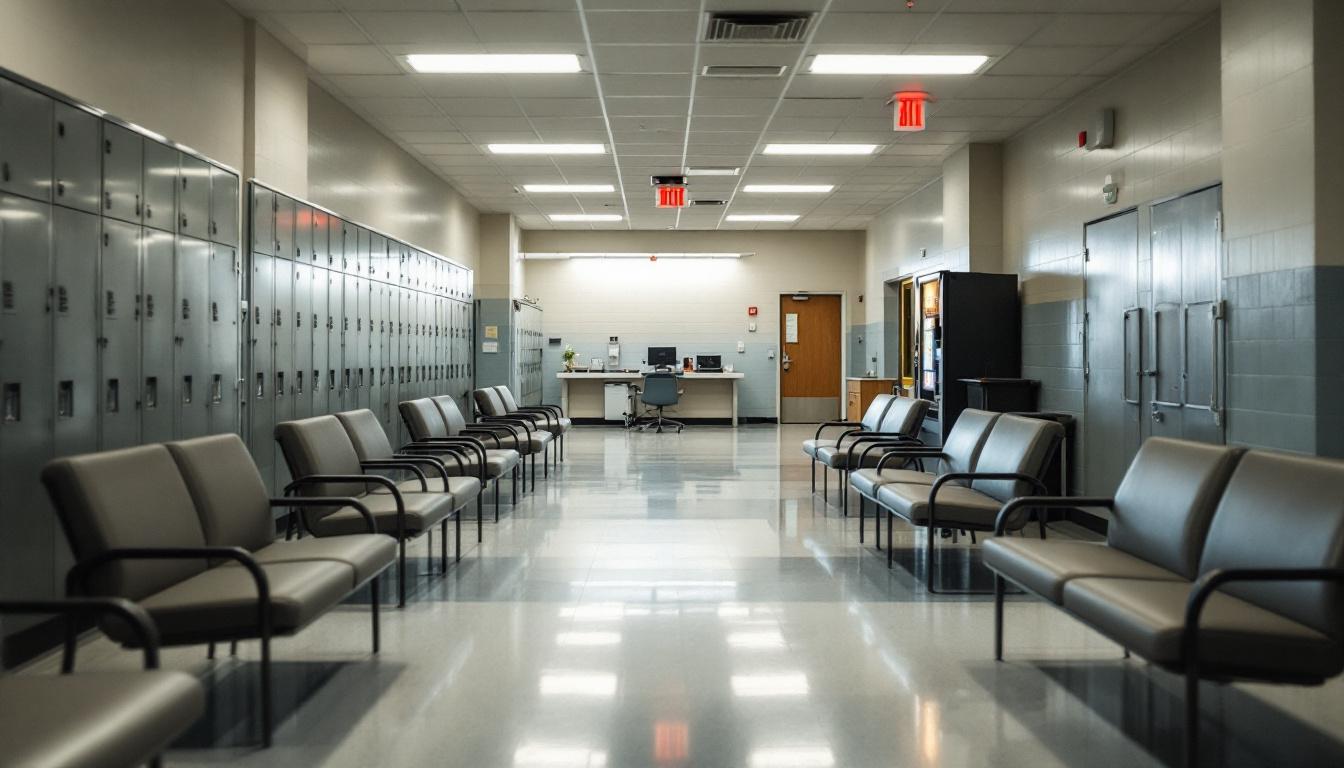
Strong family bonds and community connections help sustain those incarcerated through their time at the facility. At present, the detention center actively maintains structured daily routines that balance security requirements with opportunities for social interaction and personal development. Those incarcerated typically begin each day with scheduled counts and meal service, followed by work assignments or programming activities that furnish meaningful structure to their time.
Housing units generally accommodate multiple residents who share common areas for meals and recreation. Those incarcerated usually eat meals together in designated dining areas, creating natural opportunities for conversation and community building. While security protocols govern movement throughout the facility, residents typically have access to dayrooms where they can watch television, play games, and maintain social connections with others in their housing unit. Additionally, commissary privileges allow individuals to purchase personal items and snacks that can be shared within approved guidelines.
Programming schedules often include educational classes, religious services, and recreational activities that bring residents together from different housing areas. Those incarcerated may participate in work assignments such as kitchen duties, laundry services, or facility maintenance, which provide both structure and opportunities to develop workplace relationships. Visitation policies typically allow family members and approved visitors to maintain regular contact, while telephone and mail services furnish additional means of staying connected to outside support systems. Additionally, many facilities offer video visitation options that help families maintain face-to-face contact even when distance makes in-person visits challenging.
Ready to Connect?
Start communicating with your loved one today
Search for an Inmate
